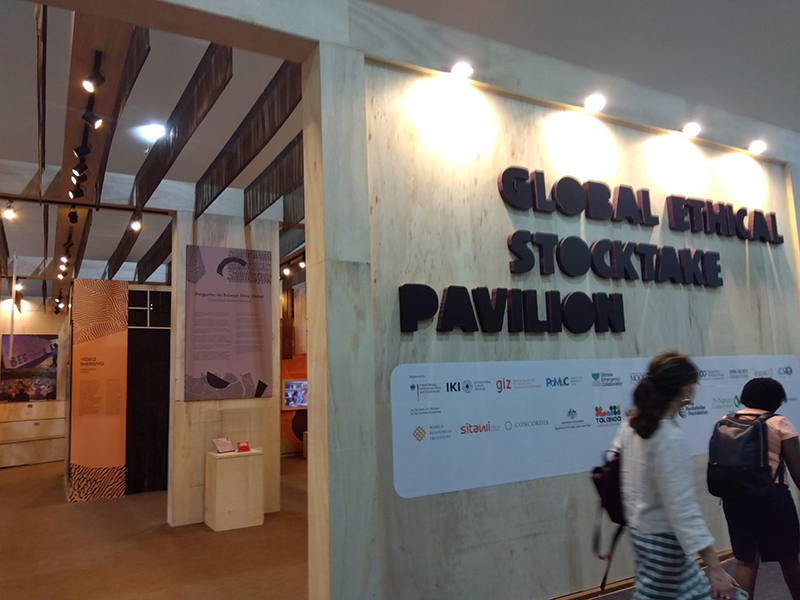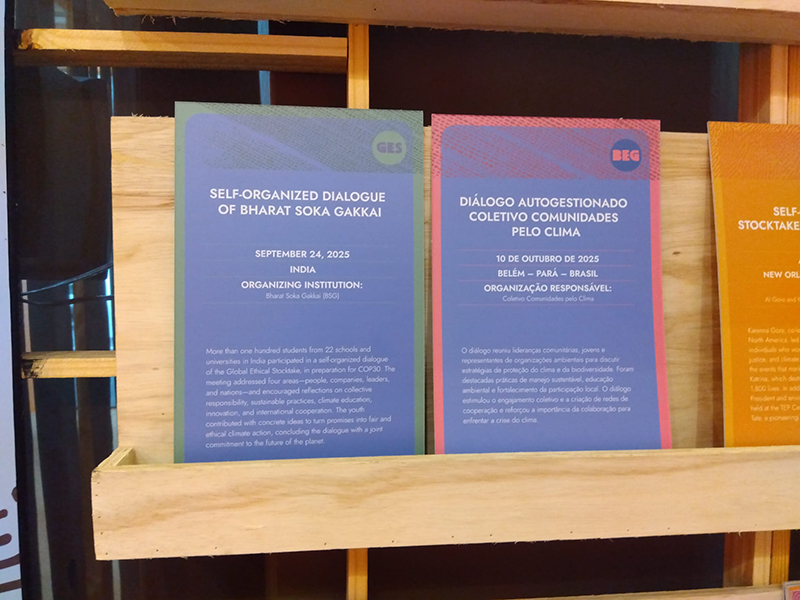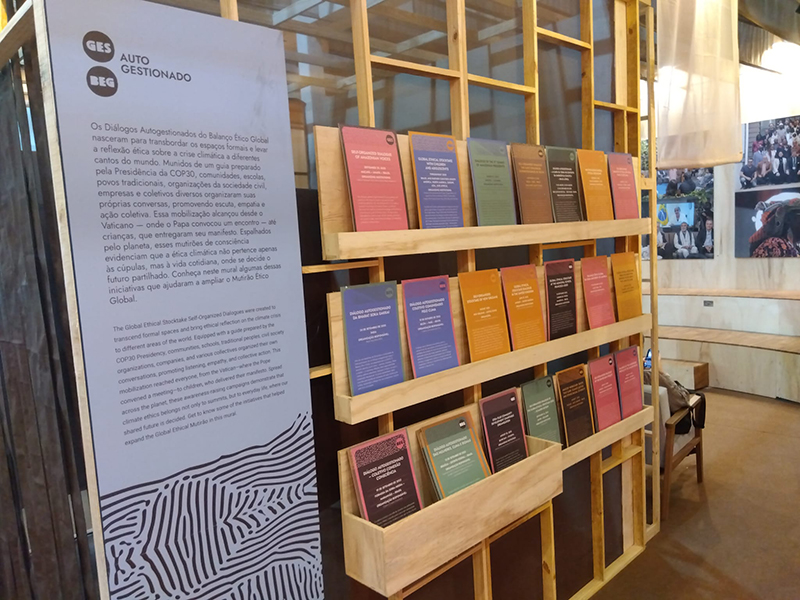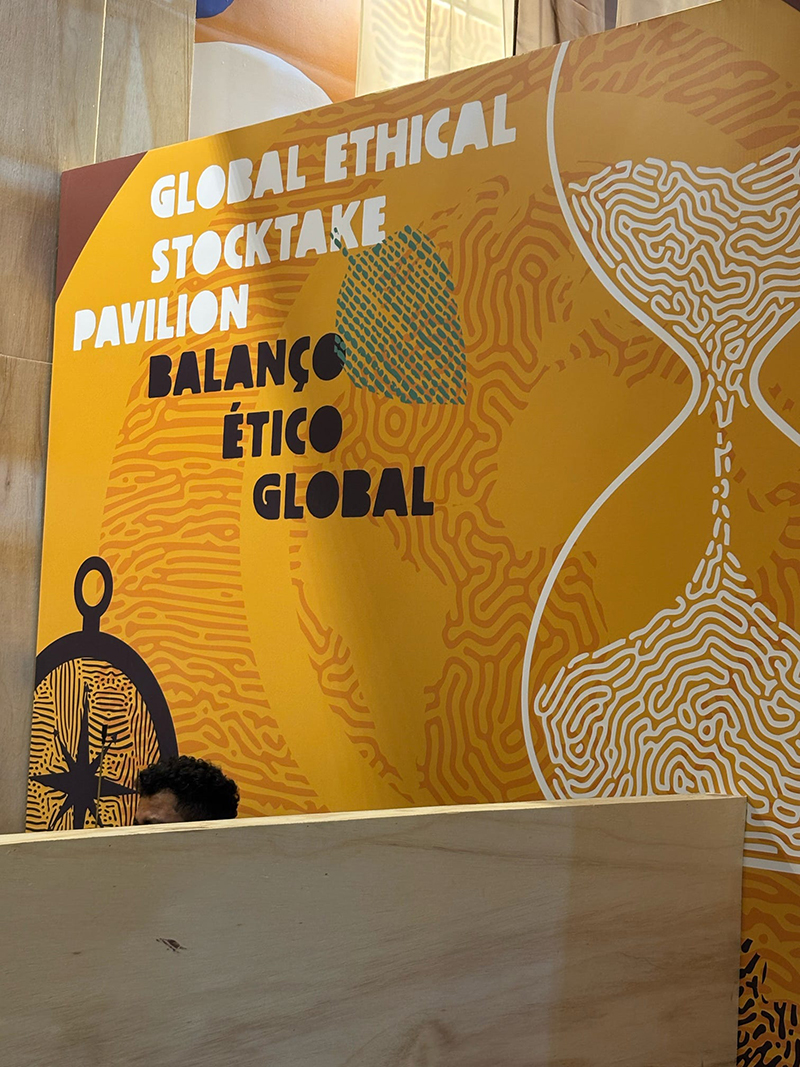On 24 September 2025, Bharat Soka Gakkai brought together young people from across India for a self-organized dialogue on the Global Ethical Stocktake (GES), in the run-up to COP30 in Brazil. What unfolded was a rare coming together of youth voices.
Over 100 students from 23 schools and colleges – including 11 BSG’s SDG Clubs – prepared, coordinated, and spoke with conviction. In their own way, they created a stocktake of youth perspectives: an honest reflection on how we can move from mere promises to just and ethical action.
The dialogue centered on a guiding question from the COP 30 toolkit:
BSG’s Self-Organized Dialogue featured at COP30 in Brazil
What the Students said –
These dialogues should be held more often, perhaps even in person.
We can practice reducing, reusing and recycling waste, conserving water and electricity.
Art and culture can inspire change – street plays, poetry, and upcycled fashion can make sustainability relatable.
When leaders listen to communities struggling due to climate change, sustainability becomes less abstract and more human.
Unity is the key. We need transparent climate scoreboards and global cooperation to ensure accountability
0Students
0Schools & Colleges
0 BSG’s SDG Clubs
Watch video of the event
The session was structured into four focus areas:
Round 1: People & Communities
The conversation began with what felt closest to the students’ own lives: the role of people and communities. Students spoke of the immense power of daily choices: choosing local produce over quick-delivery apps, saying no to single-use plastics, or adopting a local park to care for. Beyond habits, they emphasized the role of art and culture: street plays, climate-themed poetry, upcycled fashion shows, and storytelling were seen as powerful tools to shift public consciousness. The youth leading by example can ripple outward, influencing families, neighborhoods, and entire communities.
Round 2: Companies & Markets
Students recognized companies as powerful actors with resources and reach, but insisted that partnership with youth is essential for genuine change. They proposed collaborations where companies support sustainability internships, co-design Corporate Social Responsibility (CSR) initiatives with students, and pilot eco-friendly innovations in schools. They spoke of the need for companies to affordable green technologies, accessible not just to the elite but to every household. A striking point came when students discussed the role of storytelling: companies, they said, should help shift consumer culture by supporting campaigns that make sustainable living aspirational.
Round 3: Leaders & Governments
Students drew inspiration from grassroots figures like Sunderlal Bahuguna of the Chipko Movement, who led by protecting forests alongside villagers. They urged today’s leaders to act as caretakers of the planet. Concrete suggestions included stricter licensing for industries generating excessive waste, integrating traditional knowledge into modern policy, and starting local initiatives which mobilize people for the planet and help them take ownership of local challenges. The major takeaway from this round was: when leaders embody the values they promote, communities follow with trust.
Round 4: Nations & International Cooperation
The word that dominated the Mentimeter poll was unity. Students called for creative mechanisms to push for climate accountability – public climate budgets accessible to citizens, transparent scoreboards tracking ethical action, and even a “global SDG ethics passport” that measures contributions beyond promises. Another student added that empathy triggers actions. When leaders listen to communities struggling due to climate change, sustainability becomes less abstract and more human.
In closing, Mr. Vishesh Gupta, Chairperson of BSG, reminded participants that with this dialogue, their voices have now become part of the larger COP30 global conversation. He urged them to turn their insights into action by embracing sustainable human behaviour – the very foundation of just and ethical climate action.
The dialogue concluded with a collective pledge on the BSG for SDG mobile app and a shared sense of determination. In their feedback, one college student noted, “It was great to also have school students in the meeting. They brought a different kind of energy and insight.”
In the end, the discussion offered a vivid window into the ethical values, practical solutions, and cultural imagination that young people bring to the climate crisis. Listening to them is now a global imperative.








